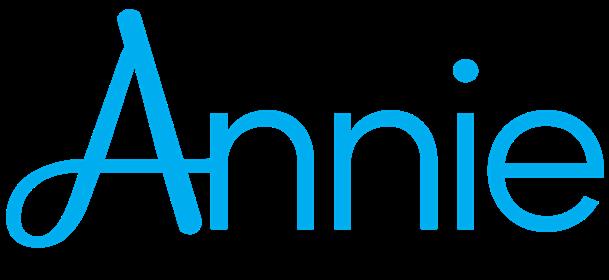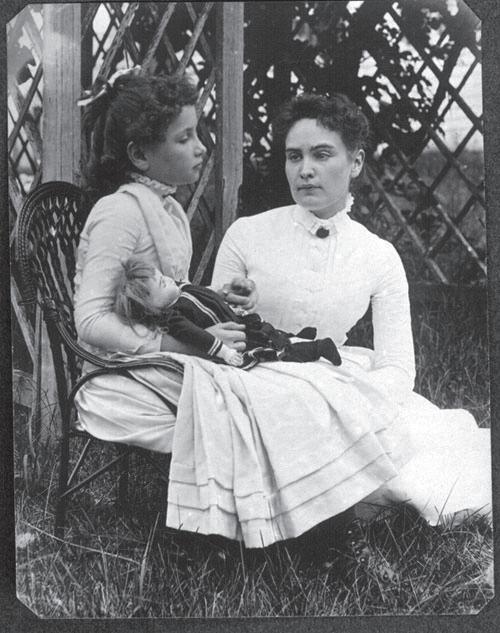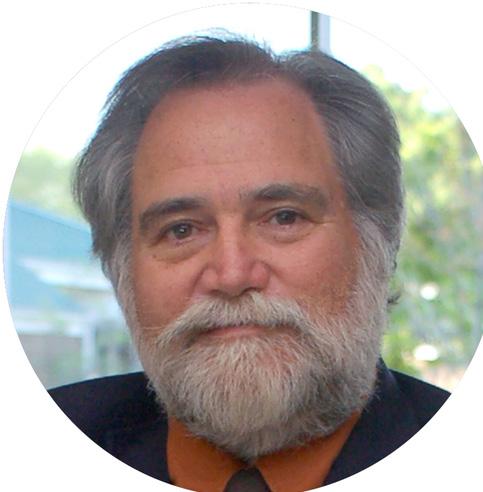
8 minute read
Nothing is Written
Rick Rader, MD, FAAIDD, FAADM - Editor in Chief

Advertisement
This is the fourth issue of HELEN: The Journal of Human Exceptionality. We are delighted and thrilled at the reception that the journal has had. Delighted and thrilled, but not surprised.
With a top-notch cadre of editorial advisors, respected authors, a full spectrum of topics and subjects, and ongoing input from all sectors of the disability community, HELEN was a safe bet.
Whatever anxiety we had about naming the journal HELEN quickly faded when readers sent us positive feedback as to the creative, innovative and appropriate homage to Helen Keller that the name portrays.
The genesis of the name is quite interesting. When we embarked on creating the journal, one of the first items on the agenda was “what do we call this newborn?”
Both Vanessa Ira, our Astandout Senior Managing Editor, and I had numerous brainstorming sessions, filled dozens of pages of legal pads and spent many moments of anguish in rejecting scores of names because they were close, but not the Aha! moment we thought the new publication deserved.
In one of these hair pulling sessions, Vanessa offered, “I got it, what about HELEN?” I was completely thrown off guard, “Where did that come from?” Vanessa shared that the inspiration came from John F. Kennedy, Jr. and his magazine he called GEORGE.
GEORGE was a glossy monthly magazine centered on the theme of politics-as-lifestyle founded by JFK, Jr. It was published from 1995 to 2001. The name, of course, was a reference to George Washington, who personified “politics” for everyone who made it past the fourth grade. It had an intriguing tagline as well… “Not Just Politics As Usual.” One could say that HELEN could be thought of as “Not Just Disability As
The Journal of Human Exceptionality Usual.” It didn’t take me long to want to drop the net on the name HELEN. Vanessa came through and we popped the cork and declared HELEN as the Aha! name for the new publication. And while it sometimes takes people a minute to put it together, most agree that it works and serves as a near perfect moniker. Ever since the launch of HELEN, I have been learning more and more about Helen Keller. Like most of us, I could probably get a “matching” question (if they even still have those on exams) correct (if VARIATION one of the options to match the name of Helen Keller was on a Theme to “blind and deaf”). I have become fascinated with her life, her trials and tribulations, her resilience and her reserve. In learning about Helen, I have been excited to read some of her quotes. It’s amazing how much you can understand about a person from the more notable things they said. One particular quote stopped me in my tracks. “The most important day I remember in all my life is the one on which my teacher, Anne Mansfield Sullivan,

came to me.” The thought that a teacher could have that impact on a person, a person who achieved so much in her life, was enough for me to have to catch my breath.
That followed with the introduction to an article, “The Story of the Anne Sullivan and Helen Keller Friendship.”
“Many people think they know the story of Helen Keller, the girl who suffered from being blind and deaf. What many don’t know is that without Anne Sullivan’s patience, guidance, and friendship, Helen Keller never would
have been transformed into the woman and success story she became.”
This paragraph I thought was bold, perhaps too bold. It served to negate some of the innate qualities that Helen obviously had and relied on. It presented Sullivan as the real hero, the person that was responsible for the heights that Helen achieved over her extraordinary lifetime. But you have to factor in the quote by Helen that suggests that her introduction to Anne Sullivan was credited as being “the most important day” in her life. One has to look closely at Anne Sullivan in order to get a better picture of Helen Keller.
Perhaps Helen would have suggested that we name this journal, this forum intended to provide a better understanding of the disability experience, not after Helen, but after Anne Sullivan. The more I learn about Anne Sullivan, the more I think she would
protest and demand that HELEN is the centerpiece of the masthead. The Keller-Sullivan axis invites us to look at the role of caregivers in the success of people with disabilities. While everyone, with or without a disability, has been influenced by teachers, mentors, guides, role models, and coaches, how can we measure their value, their contribution and their significance? I dare say that the teachers and caregivers have been equally impacted by their students, patients and clients (hate that term). Anne Sullivan (called Annie by her friends) was born in Massachusetts in 1866. At the age of five, Anne contracted the Teachers remind us that the bacterial eye disease trachoma, which left her partially blind formula for success in any and without reading or writing teaching scenario begins skills. She received her education as a student of the Perkins with a student who is School for the Blind; soon after committed, diligent, graduation at age 20, she became a teacher to Keller which determined and persistent. lasted for 49 years. Sullivan was a gifted teacher and, within six months, she taught Helen 575 words, some multiplication tables and the Braille system. Sullivan helped Keller graduate Radcliffe College by spelling the contents of class lectures into Keller’s hand and spent hours conveying information from textbooks to her. At age 35, Sullivan suffered a stroke and she became completely blind. When she was 70, she had a coronary thrombosis, fell into a coma, and died five days later, with Keller holding her hand. Sullivan’s work with Keller was immortalized in the play called “The Miracle Worker.” The title comes from Mark Twain, who thought Sullivan was indeed a “miracle worker” for the impact and influence she had on Keller. Teachers are quick to remind us that the formula for success in any teaching scenario begins with a student who
Why

Alone we can do so little; together we can do so much. - Helen Keller
HELEN: The Journal of Human Exceptionality pays tribute to Helen Keller. Ms. Keller is perhaps the most iconic disability rights advocate and an example of how an individual with complex disabilities found and used her stamina, perseverance, resilience and determination to accomplish great things.
Helen personifies the spirit, mission and vision of The Journal of Human Exceptionality. Her remarkable life is a reflection of her determination; she inspired us with her words, “What I’m looking for is not out there, it is in me.”
This quote from T.E. Lawrence implies that nothing is inevitable, life consists of choices, and how the individual can make an impact on his/her destiny. The disability community continues to reinforce and remind me of this; hence the name for my monthly musings. - Dr. Rick Rader
is committed, diligent, determined and persistent. It is for that reason that we are proud to announce that this is the fourth issue of HELEN: The Journal of Human Exceptionality. We think we got it right with HELEN.
Collaborative Organization Mission Statements
Helen: The Journal of Exceptionality is proud to be endorsed by the nation’s leading organizations that advocate for people with Intellectual and Developmental Disabilities (IDD).
The AADMD is resolved:
To assist in reforming the current system of healthcare so that no person with IDD is left without access to quality health services.
To prepare clinicians to face the unique challenges in caring for people with IDD.
To provide curriculum to newly established IDD training programs in professional schools across the nation.
To increase the body and quality of patient-centered research regarding those with IDD and to involve parents and caregivers in this process.
To create a forum in which healthcare professionals, families and caregivers may exchange experiences and ideas with regard to caring for patients with IDD.
To disseminate specialized information to families in language that is easy to understand.
To establish alliances between visionary advocacy and healthcare organizations for the primary purpose of achieving better healthcare.
It is the purpose of the American Academy of Developmental Dentistry (AADD) to establish postdoctoral curriculum standards for training dental clinicians in the care of patients with IDD, to establish clinical and didactic training materials and programs to promulgate these standards, and through its certifying entity – the American Board of Developmental Dentistry – to grant board-certification to those dentists who have successfully completed these training programs.
The American Academy of Developmental Medicine (AADM) is a medical society dedicated to addressing the complex medical needs of individuals with intellectual and developmental disabilities across the lifespan. It incorporates clinician training and awareness, teaching, advocacy, research, board certification, health equity, interdisciplinary collaboration, inclusive care delivery models and shared decision making.
AAHD is dedicated to ensuring health equity for children and adults with disabilities through policy, research, education and dissemination at the federal, state and community level. AAHD strives to advance health promotion and wellness initiatives for people with disabilities. AAHD’s goal are to reduce health disparities between people with disabilities and the general population, and to support full community inclusion and accessibility.

